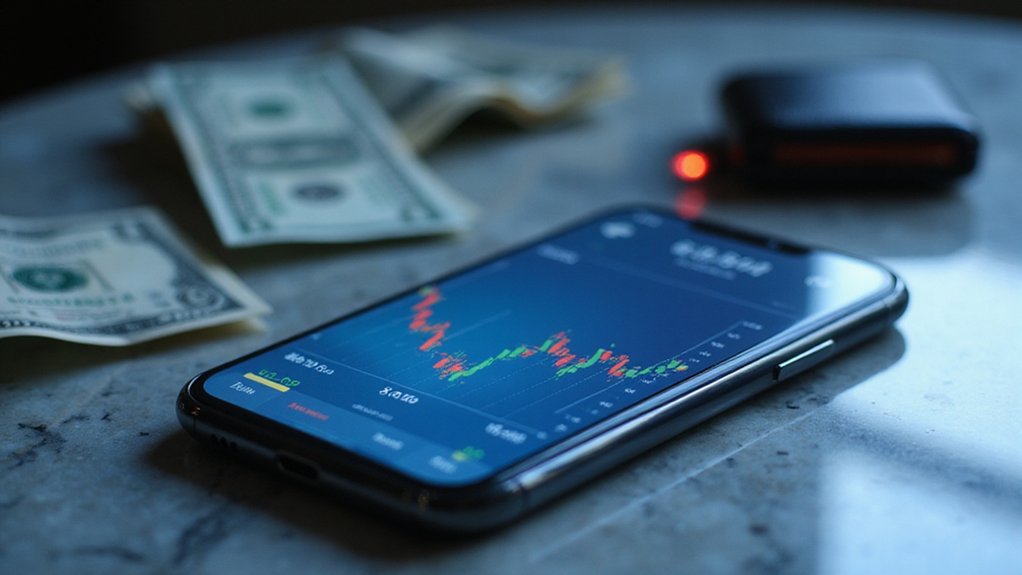Kamino has crossed the Rubicon into tokenized equities territory, becoming the first major DeFi lending protocol to accept tokenized stocks as collateral—a development that would have seemed fantastical just a few years ago when the notion of borrowing stablecoins against Apple shares living on a blockchain would have earned you puzzled stares at any respectable finance conference.
What seemed fantastical just years ago—borrowing stablecoins against tokenized Apple shares—has become DeFi reality with Kamino’s groundbreaking move.
The Solana-based protocol’s new xStocks Market launches with AAPLx, a tokenized version of Apple shares, with Tesla and Microsoft queued for subsequent rollouts. These aren’t synthetic derivatives or paper promises—the tokenized shares represent fully backed 1:1 positions in real securities held by custodians, transforming traditional equity holdings into blockchain-native assets that can be leveraged, swapped, or borrowed against around the clock.
Kamino’s v2 architecture enables borrowers to deposit tokenized stocks as collateral for stablecoin loans, effectively creating a bridge between TradFi equity positions and DeFi liquidity mechanisms. Users can now maintain exposure to blue-chip stocks while simultaneously accessing liquid capital through permissionless financial rails—a capital efficiency play that traditional finance has struggled to replicate with its cumbersome settlement systems and market hour restrictions. The growth of stablecoins facilitates efficient cross-border transactions while enabling new forms of collateralized lending that bypass traditional banking intermediaries.
The technical infrastructure relies heavily on Chainlink’s decentralized oracle network, which provides the essential price feeds necessary to maintain accurate collateral valuations in real-time. This data layer becomes particularly vital given that xStocks, created by Backed Finance, trade continuously on blockchain platforms while their underlying securities remain bound by traditional market hours and settlement cycles. The protocol’s integration represents a significant milestone as it becomes the first DeFi lending protocol to successfully incorporate stock token products as collateral options.
Regulatory complexities shadow this innovation, however. SEC officials maintain that tokenized securities remain securities under existing law, creating compliance challenges that have prompted Kamino to restrict access in certain jurisdictions, including the United States and United Kingdom. The cautious approach reflects broader industry awareness that regulatory scrutiny intensifies as DeFi protocols integrate traditional financial products.
With approximately $3 billion in locked assets, Kamino’s embrace of tokenized equities signals a pivotal moment in DeFi’s evolution. Major exchanges like Kraken and Bybit are similarly exploring xStocks integration, suggesting that what began as an experimental bridge between blockchain and traditional finance may soon become standard infrastructure for next-generation financial services. The protocol’s comprehensive suite of on-chain asset marketplaces will extend beyond equities to encompass diverse financial instruments as the platform scales.





